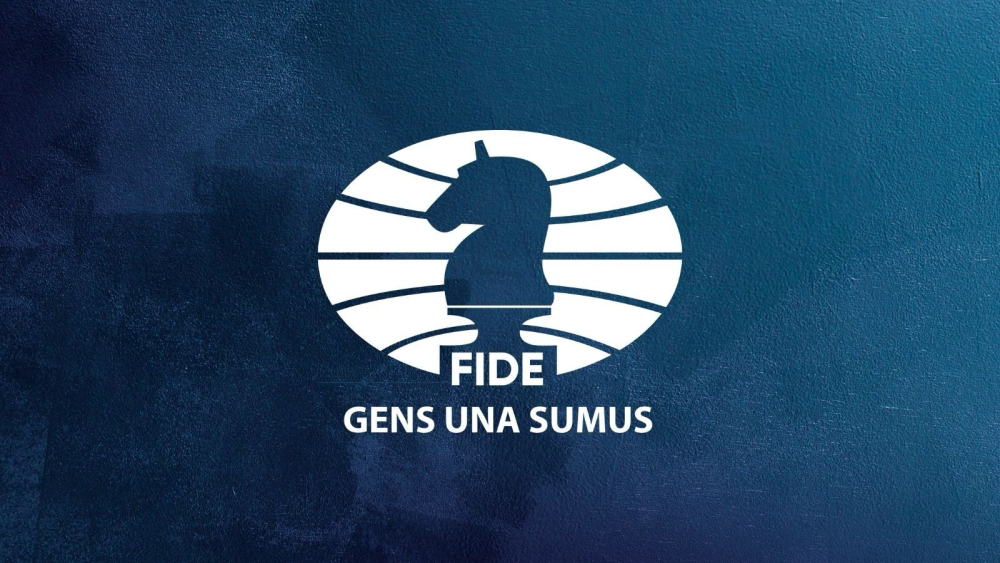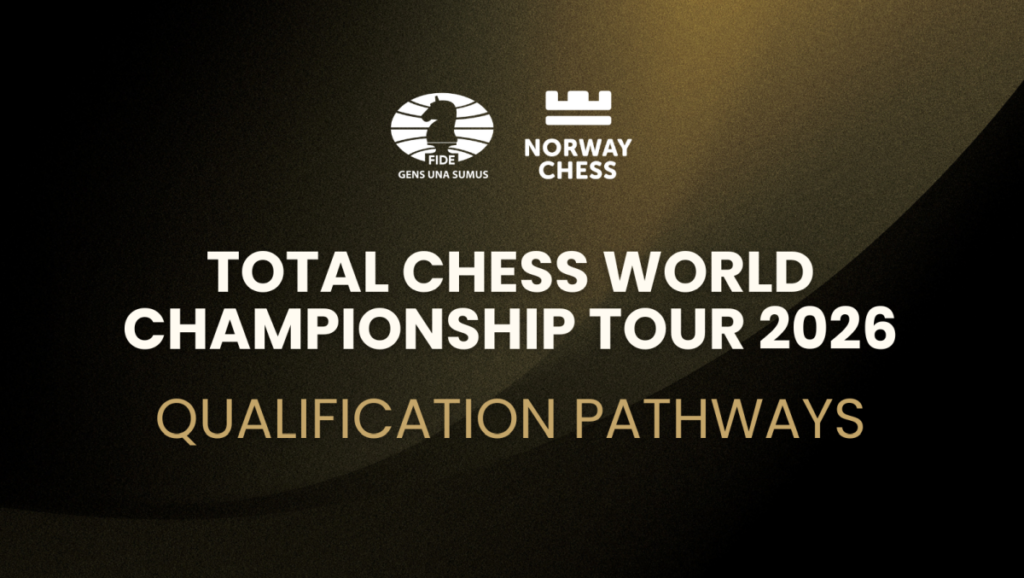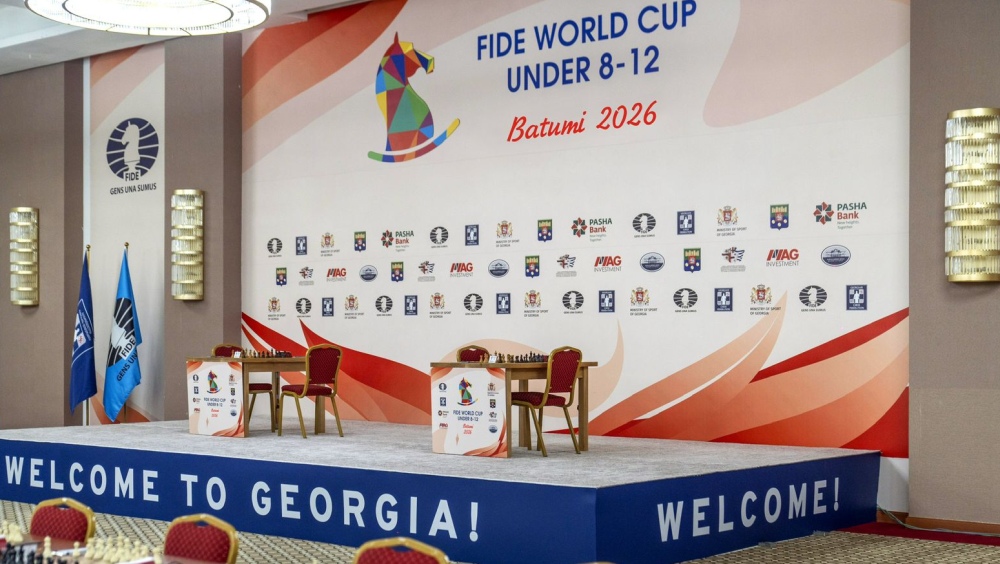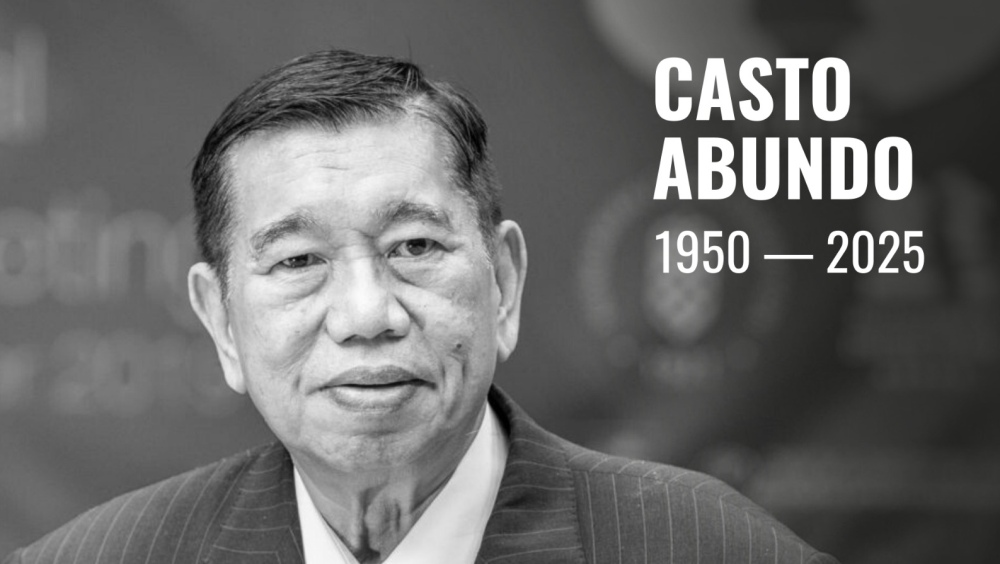Italian Championship 2025: Luca Moroni and Olga Zimina capture titles

GM Luca Moroni and IM Olga Zimina are newly crowned Italian chess champions. Both won their fourth national titles. The Italian Individual Chess Championship 2025 took place from November 27 to December 8 in the new Technical Center of Italian Chess Federation located in Spilimbergo, Friuli Venezia Giulia region, recently opened in September. The open event an eleven-player round-robin (Michele Godena had to withdraw for very serious personal reasons) was a fiercely contested tournament with three players – GMs Sabino Brunello, Luca Moroni and IM Francesco Bettalli – sharing the lead with 4.5/6 at the half-way mark. At this crucial juncture, the top seed Moroni – the only participant rated over 2500 – reeled off three straight wins (including one over Betalli) to surge ahead. Two draws in the last rounds secured him his fourth national crown with a final score of 7.5/10. Brunello finished a half-point behind the champion, remaining the only unbeaten player in the field, while Betalli rounded out the podium with 6/10. Final standings Open The women’s event, a ten-player round-robin, followed an even more dramatic script coming down to the wire in the final round. IMs Olga Zimina and Marina Brunello dominated the competition and entered the last round tied for the lead with 7/8. Brunello could not overcome the resistance of WFM Enrica Zito in an opposite-colored bishop endgame and had to settle for a draw, while Zimina scored a crucial victory over WFM Elisa Cassi to clinch the title. WIM Camelia-Adriana Ciobanu and WFM Giulia Sala shared third place, with the former earning bronze thanks to her victory in their direct encounter. Final standings Women FM Niccolò Casadio emerged victorious in the Under 20 Open section, while Giulia Sala was crowned the best U20 Woman based on her fourth-place finish in the Women’s Championship. Final standings U20 Official website: federscacchi.com/eventi/ Photos: Denis Scarpante
List of Member Federations having right to vote at General Assembly 2025 published

In accordance with the FIDE Electoral Regulations, FIDE has published the list of Member Federations eligible to vote at the 2025 General Assembly. The list includes the names of the Presidents and Delegates for each federation, as well as a separate list of suspended Member Federations. Member Federations having right to vote at the General Assembly 2025 (PDF)
World Rapid and Blitz Champions to Qualify for Total Chess World Championship Tour

FIDE and Norway Chess have agreed on the key qualification pathways for the Total Chess Tour 2026, the pilot tournament of the new world championship concept. The format is part of the broader Total Chess World Championship Tour, that will crown an overall champion across Fast Classic, Rapid, and Blitz, officially approved by FIDE. The Tour is expected to become one of the most prestigious additions to the elite chess calendar. The Total Chess initiative, launched by Norway Chess and approved by FIDE in October 2025, is designed to identify “The Total Chess Player”, a versatile competitor who excels across multiple time controls. The Tour will ultimately consist of four events per year in global host cities and award the title of FIDE World Combined Champion. A pilot event is planned from early to mid-October 2026. The official and full championship season to crown the FIDE World Combined Champion will begin in 2027. Qualification pathways for Total Chess Tour 2026 The three medalists of the 2025 World Rapid Championship and the finalists of the 2025 World Blitz Championship will earn the right to participate in the Total Chess Tour 2026. In addition, world champions will also qualify for the inaugural Total Chess World Championship Tour in 2027. The main qualification pathways for participation in the pilot tournament have been approved as follows: 1–2. The reigning World Champions, Gukesh Dommaraju and Ju Wenjun 3–5. The three medalists of the 2025 World Rapid Championship 6–7. The finalists of the 2025 World Blitz Championship 8–16. The top nine players in the classical rating list as of January 1, 2026 17–18. The winners of the 2026 Candidates and the 2026 Women’s Candidates. 19–21. The top three players in the classical rating list as of June 1, 2026 (excluding those already qualified) 22–24. FIDE Circuit / FIDE Open Circuit (special ranking, including only open events). The full Regulations, including player replacement rules, will be published by December 22, 2025. About Total Chess World Championship Tour The Total Chess World Championship Tour introduces a new combined world title spanning Fast Classic, Rapid, and Blitz. Fast Classic is an innovation of classical chess with a shorter time limit, down to 45 minutes plus a 30-second increment, and will receive classical rating. The Tour will feature a minimum $2.7 million annual prize pool, including at least $750,000 for each of the first three events and $450,000 for the Finals (with four players), plus performance bonuses.
FIDE announces World Cadet Championship Cycle 2026: Registration for World Cup U8-U12 is now open

Starting in 2026, FIDE is introducing a revamped and elevated championship cycle for the Under 8, Under 10, and Under 12 age categories to make it more attractive, interesting and prestigious. The World Championship U8-U12 (formerly the World Cadet Championship) has been renamed the FIDE World Cup for Youngsters, with competitive conditions remaining unchanged. The 2026 FIDE World Cup U8-U12 will be held from June 15-28 in Batumi, Georgia, following the same system as the last year’s World Cadet Championship U8, U10, U12. Every national federation can register one invited player per category (under 8, 10, and 12, both Boys and Girls). The total of six players and one head of delegation with valid FIDE ID are invited by the Organizer. The players placed 1-3 in the previous U8, U10, U12 World Cadets Championships & World Cadets Cup, and the respective champions (1st ranked) of the last Continental Cadet Championships also will be considered as the invited players. On a rest day (June 22), participants can take part in several side activities. These include a Delegation Coaches Blitz Tournament with a substantial prize fund of €4,000, the Chess Composition championship, engaging excursions, and a football match between FIDE and Georgian Chess Federation. Special prizes await the top finishers across all six playing categories. The top three players in each category will receive awards, including Cups, Medals, Diplomas, and gadgets such as the latest models of MacBook Air, iPhone, or iPad (depending on placement). In addition, the first, second, and third-place winners of each age and gender category will receive free full board accommodation for the FIDE World Championships U8, U10, U12 later in the same year. FIDE member federations shall complete the registration of the World Cup participants by April 15, 2026. World Championships U8, U10, U12 Invitation letter will be published in due time as the tournament is scheduled for November 10-17. More information about the FIDE World Cup U8-U12 can be found on the official website: wcc2026.fide.com/ Regulations for FIDE World Cadets’ Championship Cycle 2026 (PDF) The official email: wcc@fide.com
Praggnanandhaa wins FIDE Circuit 2025

Praggnanandhaa Rameshbabu has won the FIDE Circuit 2025, securing a spot in the 2026 Candidates Tournament. The Indian prodigy seized the lead in the race in May by overtaking Ding Liren and confidently maintained it throughout the season. By the end of November, his main rivals – Anish Giri, Fabiano Caruana, Matthias Bluebaum, and Javokhir Sindarov – had already qualified for the Candidates 2026 via other paths, while Vincent Keymer had no classical events scheduled for the rest of the year. Only Nodirbek Abdusattorov, who was playing in the points-heavy London Chess Classic Elite, had a theoretical chance to catch up. With this in mind, Praggnanandhaa made a last-minute entry into the London Chess Classic Open to clinch his Candidates qualification, regardless of the upcoming FIDE Rapid and Blitz results. He did deliver, scoring 7/9 in a strong field, tying for first place, and collecting 8.17 circuit points. Despite Abdusattorov’s brilliant performance in the London Chess Classic Elite, which produced one of the highest TPRs in the history of chess and netted him 19.62 circuit points, Praggnanandhaa’s result placed him out of reach and punched his ticket to the 2026 Candidates. Congratulations to Praggnanandhaa, who deservedly earned one of the eight slots in the 2026 Candidates. The young Indian has been the best FIDE Circuit player throughout the year, winning the Tata Steel Masters, Superbet Chess Classic Romania, UzChess Cup Masters, and London Chess Classic Open, and finishing second in the Stepan Avagyan Memorial and 12th Sinquefield Cup. We maintain dedicated pages on our website for the FIDE Circuit 2025 featuring the latest information on eligible tournaments, current standings, and regulations. Visit: FIDE Circuit 2025
Kakuma Chess Club Project: 2025 Milestones

In 2025, the Kakuma Chess Club, supported by FIDE and project partners, successfully delivered structured chess training, girls’ empowerment sessions, and competitive tournaments across the Kakuma and Kalobeyei refugee camps. The program reached over 2,300 children and youth this year, providing life skills, safe recreation, exposure to national events, and pathways toward long-term chess excellence. The Kakuma and Kalobeyei refugee camps host diverse populations facing significant psychosocial and educational challenges. The Kakuma Chess Club uses chess as a low-cost and culturally inclusive tool to strengthen cognitive abilities, promote peaceful coexistence, and offer meaningful alternatives for youth engagement. In collaboration with FIDE, Chess Kenya, UNHCR, and LWF, the program continues to grow into one of the most respected youth development initiatives in the camps. “As the leader of the Chess for Protection project, who has been involved since its very beginning four years ago, I am truly happy with the progress we have achieved. We have built a strong and well-structured foundation, and the number of people interested in learning chess continues to grow. However, it is very important to remember that in this community we speak about chess in a social context — as a form of support, a tool that helps people express themselves, and a way to overcome painful life experiences. I am very glad that chess is not only a sport, but also a powerful means of helping people around the world who find themselves in difficult circumstances. We have achieved all of this together with our partners — UNHCR, Chess Kenya, Lutheran, DGT, and Gift of Chess,” said Anastasia Sorokina, leader of the Chess for Protection project. Project milestones Girls’ Chess Club: January–December 2025, with weekly Saturday sessions held at four schools: Bear-El-Naam Girls Primary School, Angelina Jolie Girls Primary School, Lifeworks Tumaini Girls Secondary School, and The Big Heart Foundation Girls Secondary School. The Big Heart Foundation Girls Secondary School joined the program in June, and with FIDE’s support, received all necessary equipment to hold weekly lessons. The program created a supportive, girl-centered environment to encourage confidence, skill development, and long-term participation. Anastasiya Karlovych and Salome Melia, trainers of the Girls’ Club:“We’re proud of everything our girls accomplished this year! Their progress, determination, and unity made this season truly special. We grew from three schools to four, and it’s wonderful to see our community continue to grow and inspire even more young girls!” Main program activities:February–October 2025. Led by trained Local Chess Facilitators, activities were conducted in 37 learning institutions and more than 20 community clubs across Kakuma and Kalobeyei. 2025 Tournament participation Kenya National Youths & Cadets Championship– Mangu High School A major national event exposing youth to high-level competition. World Refugee Day Chess Tournament– Kakuma Second official edition. Featured Open and Female categories with cash prizes. Kitale National Youths & Cadets Championship– Kitale Polytechnic Enhanced exposure to competitions outside the camp setting. Victoria East Africa U21 Championship– Kisumu (Sarova Imperial Hotel) Results and achievements Development of local chess experts who now serve as facilitators. Increased participation in national and regional tournaments. Improved life skills: strategic thinking, resilience, patience, and emotional control. Strengthened networks and friendships through external travel. Girls’ participation increased significantly through dedicated training spaces. Youths received recognition and cash awards during World Refugee Day activities. Material support FIDE:Since the project’s inception, FIDE has provided over 600 chess materials to support its operations. Gift of Chess:100 boards for competitions, plus over 20 boards for community clubs. DGT:100 digital chess clocks. Sergejs Klimakovs’ visits to KakumaFM Sergejs Klimakovs has provided in-person coaching in Kakuma. Following his first session in March, he conducted a second offline training camp for the teams from November 21 to December 3, 2025, as part of the preparation process for the Chess Olympiad. The training camp in Kakuma began with a facilitators’ awards ceremony, where certificates of appreciation were presented for their significant contribution to the development of chess culture in Kakuma, Kalobeyei, and the surrounding areas. Following the ceremony, Sergejs Klimakovs also held a seminar for facilitators on effective exercises and practices, offering tips for developing chess players of all ages, from beginner to master. On the second day, the camp began for the most talented young chess players from Kakuma and the surrounding area. In the morning, girls worked on the basic principles of thinking in various types of positions. In the afternoon, boys learned to understand the main types of basic rook endgames and explored the nuanced topic of “balancing activity, piece coordination, and material.” Over the next two weeks, the young talents of Kakuma learned many new and interesting concepts in chess. In the final days of the camp, they faced a major test: a round-robin tournament. This in-person training also served as a preparation process for the 2026 Chess Olympiad, including team qualification and training. The next training visit is planned for February 2026, followed by a FIDE team visit in May 2026. From December 15-17, 2025, Dana Reizniece, Anastasia Sorokina, and Andre Voegtlin will represent FIDE and the Chess for Protection project at the UNHCR Global Refugee Forum: unhcr.org/about-unhcr/overview/global-compact-refugees/global-refugee-forum. Looking ahead The Kakuma Chess Club continues to be a vital force for youth empowerment, education, and social cohesion within Kakuma and Kalobeyei. In 2025, the program expanded its reach, nurtured new talent, and offered transformative experiences despite challenging conditions. With sustained donor support, the project is well-positioned to grow into an even stronger platform for protection, learning, and community development.
The next generation of chess stars playing in Doha

A strong field of young talents is set to challenge the elite at the World Rapid and Blitz in Doha this December. Here are some of the names who may become the next kings and queens of the chessboard. In less than three weeks the eyes of the chess world will be on Doha – the capital of Qatar which, for the last week of the year, will be the world centre of chess, where the World Rapid and Blitz Champions will be decided. Usually, the main media interest is on the top-dogs – the 2700+ regulars who traditionally dominate big events: Carlsen, Gukesh, Nepomniachtchi, Caruana in the Open, or the likes of Ju Wenjun, Lei Tingjie, Goryachkina, Koneru, Lagno, Anna Muzychuk in the Women’s competition. But Doha will also be the stage for another story shaping chess – a generational showdown between the established stars and those whose rise is just beginning. Teenagers and even pre-teens are lining up on the same boards, facing the same clocks, testing themselves against the stars they grew up watching. Some already have grandmaster titles. Some have become national champions before they finished school. All of them are moving fast – both on and off the board. These are the rising stars in Doha. Young, ambitious, ruthless and fearless, staking their claim for the top. The Open Photo: Michal Walusza GM Ivan Zemlyanskii (pictured above) – born in 2010, he already boasts a rating over 2590 in classical chess. In May 2024, at the age of just 13, Ivan became the youngest Russian grandmaster in history and one of the youngest in the world, after scoring his final norm at the Sharjah Masters. Since then, he has been closing in on the 2600 mark. GM Savva Vetokhin is another new name with serious results. Born in 2009, he is already a 2550 plus grandmaster and has a long line of youth medals. His titles include the World Under-10 champion, the World Under-14 Blitz champion, and a silver medal at the World Under-8 Rapid Championship. His commanding victory at the strong Sunway Sitges open in 2024, without a single loss, marked him out as a player to follow. Photo: Michal Walusza GM Yağız Kaan Erdoğmuş (pictured above) from Turkey, born in 2011, is the fourth-youngest grandmaster in history and the youngest player ever to reach 2600. He has already made strong impressions at events such as Grenke and the TePe Sigeman tournament. Coming across as confident both on and off the board, Erdoğmuş is recognised for his attacking style, demonstrated in the much talked about “Turkish Immortal” game against Aditya Mittal in the 2025 Grand Swiss. At just 14 and already a top 100 player, he will be one of the most closely watched prodigies in Doha. GM Ediz Gürel, also from Turkey, was born in 2008 and became a grandmaster in 2024. He won an individual bronze medal playing on board two for Turkey at the 45th Chess Olympiad in Budapest in September 2024. In 2025, he made headlines by defeating reigning world champion Gukesh in Samarkand, becoming one of the youngest players ever to beat a reigning World Champion. That single game as well as his broader performance in Samarkand placed him firmly in the global spotlight. IM Faustino Oro (pictured above) of Argentina was born in 2013. Known as the “Messi of chess”, He became the first player under 12 to cross 2500 rating and to score a grandmaster norm. His unbeaten 7½ out of 9 at a Legends and Prodigies event in Madrid confirmed that his strength is not limited to junior tournaments. IM Mukhammadzokhid Suyarov from Uzbekistan, born in 2009, has a classical rating of 2454 and already holds the IM title. He is coming to Doha with the crown of the World Junior Rapid Champion, which he won in Lima, in September. His current rapid rating is 2411. Mukhammadzokhid has beaten several grandmasters in strong open tournaments, scored well in events such as the UzChess Cup, qualified from the Asian zonal to the 2025 World Cup and took third place in a Chessable Masters qualifier. Photo: Eteri Kublashvili IM Aldiyar Ansat (pictured above) of Kazakhstan – born in 2008 – became the chess champion of Kazakhstan in 2023 and has a rating in the high 2400s. Aldiyar has already won the Asian Zonal 3.4 Championship, earning a place in the 2025 World Cup. For a teenager, leading a strong and rising chess country in major events is a big statement. IM Erdem Khubukshanov, born in 2007, is another young star on the rise. His classical rating is around 2500 and his rapid and blitz ratings are around 2420. He has been scoring plus results in strong open tournaments and has established himself as part of the new generation of ambitious IMs who are close to grandmaster level. Photo: Michal Walusza GM Ihor Samunenkov (pictured above) from Ukraine, born in 2009, is already a grandmaster with a standard rating close to 2580. He is seen as one of the leaders among the under 16 players worldwide, and his steady results in elite junior events have built him a reputation as a very solid and mature player for his age. GM Denis Lazavik, at 19, sits slightly above the usual age line for a junior event, but very much within the spirit of a rising star. He is a 2600 level grandmaster, one of the most successful young players in online and rapid chess, with strong results in elite internet tournaments and over the board opens. He is not yet a regular in the biggest classical super tournaments, which keeps him in the “still rising” group rather than the fully established elite. GM Bharath Subramaniyam H of India, born in 2007, became India’s 73rd grandmaster at the age of 14 years and two months. Now in the mid-2500s, he has a record full of strong international results and earlier youth titles. His pace of development has kept him in
Casto Abundo (1950-2025)

It is with deep sadness that the International Chess Federation (FIDE) has learned of the passing of Casto Abundo, Executive Director of the Asian Chess Federation. Throughout his long and distinguished career, he tirelessly promoted chess at both continental and international levels. An International Arbiter since 1978, he served as FIDE Secretary from 1988 to 1990. His exceptional organizational skills were demonstrated as director and Chief Arbiter at major events, including the 1992 Chess Olympiad in Manila, the 2000 World Championship, and the 2001 World Cup. As Vice-President (2006-2014) and later Executive Director of the Asian Chess Federation, he was instrumental in strengthening its institutional framework. His groundbreaking initiatives created a solid foundation for the development of chess in Asia for years to come. Casto Abundo’s passing is a great loss to the global chess community. Known for his visionary leadership, he possessed a rare ability to unite national federations, fostering a spirit of mutual respect and shared purpose. FIDE and the Asian Chess Federation extend their heartfelt condolences to his family, colleagues, and loved ones. His profound professional and human legacy will remain deeply cherished and will continue to inspire the path forward.
Diego Flores wins 100th Argentine Championship

GM Diego Flores emerged as the winner of the 2025 Argentine Championship, claiming his eighth national title. The champion scored an impressive 8.5/11 and was the only player to complete the event undefeated. With this victory, Flores has equaled the legendary Miguel Najdorf‘s record for the most titles in the history of the competition. The 100th edition of the Argentine Championship, a 12-player round-robin tournament, took place at Buenos Aires City Hall from November 25 to December 5. Flores entered the competition as the top seed and confirmed his status as the pre-tournament favorite. After a relatively slow start with two draws, he picked up steam, took the lead by winning three straight games, and never relinquished it. As fate would have it, the final 11th round featured a clash between the leader and his closest rival, the 2021 champion Federico Perez Ponsa. With a full-point cushion, Flores played solid chess and secured the title after a draw was agreed on move 37. Perez Ponsa finished a point behind the champion, taking silver with 7.5/11. GMs Diego Valerga and Leonardo Tristan both scored 7/11 and tied for third place, with Valerga claiming the final podium spot due to a greater number of victories. The young prodigy IM Faustino Oro turned in a solid performance, netting 6.5/11 and tying for fifth place. Final standings: 1 GM Diego Flores 2563 8½ 2 GM Federico Perez Ponsa 2528 7½ 3 GM Diego Valerga 2420 7 4 GM Leonardo Tristan 2487 7 5 IM Faustino Oro 2495 6½ 6 IM Pablo Ismael Acosta 2501 6½ 7 IM Julian Villca 2391 6 8 IM Mario Villanueva 2465 5½ 9 FM Carlos David Gomez 2407 4 10 IM Cristian Dolezal 2374 3½ 11 WGM Candela Guecamburu 2238 2½ 12 IM Pablo Barrionuevo 2260 1½ Photos: FADA Facebook
Decision-making: From chessboard to boardroom

Leadership Lessons from the 2025 FIDE World Corporate Chess Championship Corporate chess is thriving across global companies. Google boasts a community of 2,500 active players, including executives like Dennis Hassabis, and runs both online and over-the-board tournaments. J.P. Morgan started a global chess club three years ago and now has 500 players worldwide, with local clubs forming in multiple countries. UBS has a long-standing Zurich club with 400–500 players and is expanding its reach to the USA, India, and beyond. In an increasingly competitive and dynamic global marketplace, the ability to think strategically has become a defining feature of successful businesses and their leaders. While strategy is often associated with corporate planning and market positioning, it also lies at the heart of one of the world’s oldest and most intellectually respected games – chess. Chess is more than a pastime; it is a complex exercise in planning, risk assessment, and tactical execution. The parallels between chess and business are striking, showing how principles from the game can enhance leadership, improve decision-making, and drive long-term corporate success. Representing Morgan Stanley, Gabor Szamoskozi highlights these connections: careful consideration of each decision, anticipating the next steps, and managing time effectively are skills that apply equally to the board and the workplace. The 2025 FIDE World Corporate Chess Championship During the 2025 FIDE World Cup, held in India in November, eleven top companies from around the world converged in Goa to compete in the 2025 FIDE World Corporate Chess Championship. For a few days, this corporate tournament ran parallel to the main event. The championship highlighted the growing role of chess in modern workplaces, offering employee teams a global stage to represent their organisations. Participating teams spanned technology, finance, consulting, engineering, and fast-growing firms from emerging markets. Currently ranked seventh in the official world chess rankings, R. Praggnanandhaa pointed out the importance of the event during his visit: “Having more corporate companies involved in chess is certainly very positive for the game. I’ve noticed that most of them are large organisations, and it’s a unique opportunity for them to play in the same venue as the World Cup. When companies are excited, participate, and contribute even in a small way, it benefits the game and is appreciated by all the players.” After qualifying online against hundreds of other companies, Greco was crowned the 2025 Corporate Chess Champion, officially recognised as the smartest company in the world. Morgan Stanley finished as the runner-up, while Deloitte and Google secured third and fourth place, respectively. Decision-making Both chess and business involve making decisions with imperfect information and limited time. A chess player must evaluate multiple possibilities under time constraints, recognizing that hesitation can lead to lost opportunities. “You have one and a half hours for a full chess game, but you need to manage your time from the very first move to the last. It’s the same with work deadlines: you might have a month to complete a project, but if you don’t recognise the sense of urgency from day one and use your time wisely, you risk missing the deadline”, explained Filippos Stamos, Senior Software Engineer at Microsoft. Similarly, managers often face deadlines and must choose among competing priorities with limited data. The ability to make confident, timely decisions, without succumbing to stress, is a shared hallmark of both domains. Alongside his role as Senior Tax Manager at Deloitte, International Chess Master Mateusz Kolosowski has competed at a very high level in chess for many years. “It’s very difficult for chess players to handle time pressure – every single move can be critical, and you have to be ready to take responsibility for each decision. This experience has greatly helped me in my professional career”. Women in chess and business Hallgerdur Helga Thorsteindottir was the only female participant in the Goa finals. “It feels a bit lonely being the only woman on my board,” she said. “I hope more women get involved – there are many who play chess, and firms should actively promote inclusivity.” Playing for Deloitte was a major motivation. “Chess is respected within firms, but we want it to grow and become more visible. Events like this are a great way to connect chess and business.” Leadership Chess imparts numerous qualities applicable to leadership: Learning from mistakes: A mistake in chess may cost a piece; in business, it may cost market share. Reviewing what went wrong fosters growth. Stamos shared his own company experience: “Chess has helped me a lot with self-improvement. In chess, I analyse my games and learn from my mistakes, and that is the mentality we have at Microsoft, at least in my department: we always reflect, see what we could have done better, and strive to improve. This aspect of chess is excellent and directly connected to work”. Vision and purpose: A strong player always begins with a goal. Leaders must similarly articulate a clear mission to guide their teams. Resilience and emotional intelligence: Chess demands calm, even in the face of setbacks. Effective leaders remain composed, motivating teams and navigating uncertainty. Kolosowski talked about his role as team captain: “Primarily, it’s about taking responsibility for every decision you make. Leadership, though it may seem counterintuitive in chess, is also crucial. I hold a relatively senior position at Deloitte and am responsible for an entire team of professionals. While chess is often considered an individual sport, in team competitions you need to organize your team, ensure everyone is performing well, and foster team spirit.” Adaptability: No chess game unfolds exactly as expected. Likewise, evolving consumer preferences and technological changes require businesses to pivot quickly. Chess and business careers Many prominent executives emphasize the influence of chess on their careers. Some use the game to sharpen analytical skills, while others leverage it to teach employees the value of planning and patience. “In chess, you need to anticipate future moves, develop new strategies, and assess your strengths and weaknesses. In my line of work, learning something new is fine, but

